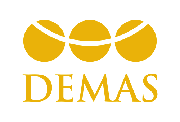Media in the Post-Truth World: The New Marketplace of (Dis)information
New York University Prague, 2-4 November 2017
The surprising decision of the UK to depart the EU and equally stunning win of Donald Trump in the U.S. presidential elections have provided dramatic confirmation of long-term trends in the way people consume information, providing further evidence that so-called legacy media are now playing an even smaller role in influencing individual choice. The central challenges facing the media in 2017 are to regain some of the lost credibility that has led to a general lack of trust and also identify new roles or redefine old ones in the current communication ecosystem. What then is the mix of old and new in the marketplace of ideas affecting people’s political choices and overall local and worldviews? What sources are now most trusted, and do gatekeepers matter anymore? Are people even searching for the “truth” or simply what fits their already-predefined opinions?
Possible topics include but are by no means limited to:
Media and Politics
• The media’s role in the Brexit and Trump campaigns, as well as lessons learned from upcoming elections in France, Germany, and the Netherlands
• The impact of celebrity endorsements
• WikiLeaks’ role in the U.S. presidential campaign
• The effect of the media on voting behaviour in elections and plebiscites
• Political satire, talk shows, and humour in the media
• Populists’ use of the media, especially to polarize audiences
• Hate speech, including in political campaigns
• The role of “outside” media actors in influencing domestic elections
(Dis)information Channels – Public Opinion and the Media
• The power of disinformation and propaganda
• Media literacy as a possible antidote, with an emphasis on best practices
• The influence of fake news and conspiracy theories on public opinion
• Lessons learned from attempts to counter disinformation and fake news, including new verification tactics and tools
• Best practices in debunking myths and manipulation
• Fact checking in response to media reporting
• The responsibility of the technology giants in the fake news phenomenon, as well as the role of automated algorithms
• The growing influence of alternative media narratives
• The role of social networks as new information channels
• Echo chambers, selective exposure, and filter bubbles
• The impact of memes and other viral, non-traditional content
• Pre-election polling and public opinion
• Political and ideological polarization in media coverage and/or media consumption
Media Ownership
• Oligarchs as media owners and self-censorship
• The role of public media and government-controlled media in setting the agenda
• The declining impact of traditional media and the challenge of financial sustainability
• Fake news as a revenue source for both companies and individuals.
Please submit your 500-word abstracts and a short bio by 15 June, 2017. Please suggest 5-10 keywords which can be used for describing the content of the abstract. The abstracts will be subjected to a peer review process and should be submitted to: spata@keynote.cz
The organizers have reserved a number of spaces for non-presenting conference attendees. We also provide non-presenting students the possibility of applying for a limited number of free registration spaces for the conference. If you want to apply, please contact Martin Špáta at spata@keynote.cz.
Deadlines:
Abstract submission deadline
Notification of acceptance
Early bird registration deadline July 31, 2017
Full paper submission
Regular conference registration deadline October 15, 2017
Keynote speakers:
Peter Pomerantsev – Documentary Producer, Expert on Twenty-first Century Propaganda and Author of “Everything is Possible and Nothing is Truth” about Putin´s Russia
Cathrine Gyldenstadt – Director of Constructive Journalism at Windesheim University of Applied Sciences in the Netherlands and author of the book “From Mirrors to Movers: Five Elements of Constructive Journalism”.
Matus Kostolny – Editor-in-chief in daily Dennik N
Christian Christensen – Professor of Stockholm University, Expert on Shifting Media Environment
Jakub Kalensky – Member of East StratCom Task Force in the European External Action Service
Eliot Borenstein – Professor of Russian and Slavic Studies at New York University and Author of Forthcoming Book “Plots against Russia“
Mark Galeotti – Researcher at the Institute of International Relations in Prague, Expert on Modern Russian Politics, History and Security Affairs
Martin Hala – Sinologist, Lecturer, Author of Sinopsis.cz, a Website Tracking Topics Related to China in the Czech Republic
Aurora Wallace – Clinical Associate Professor of Media, Culture and Communication, New York University
